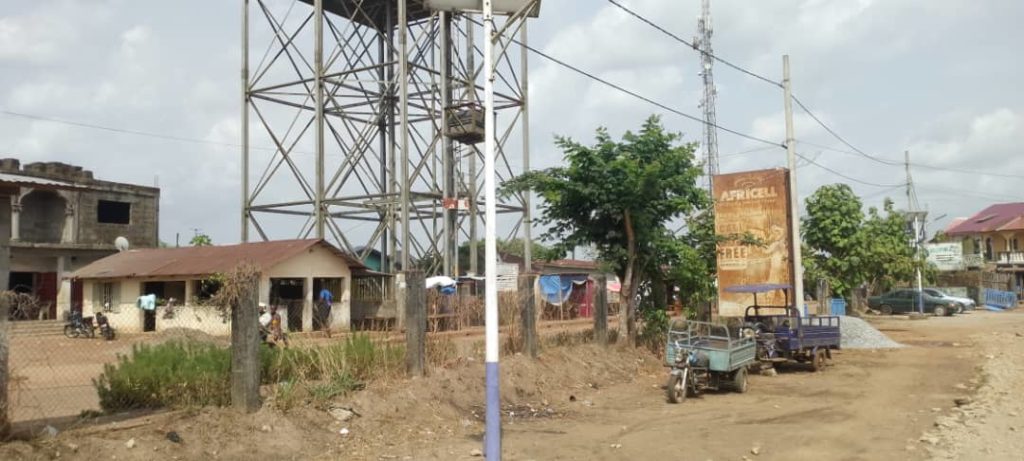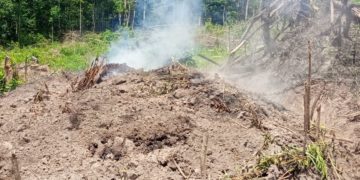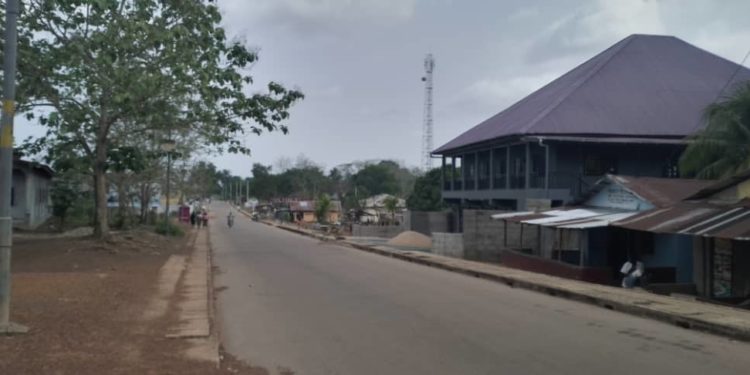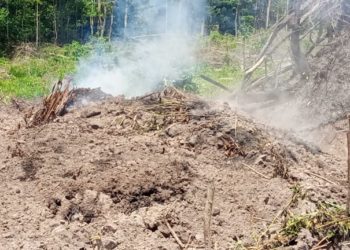By Brima Sannoh
In the quiet town of Pujehun, near Sierra Leone’s southern border with Liberia, whispers of missing children have become far too common. Behind each whisper is a grieving parent, a broken promise, and a child who may never come home. Detective Inspector Momoh Musa Gbah knows this pain all too well. As head of the Family Support Unit in the Pujehun Police Division, he has spent the better part of his career chasing shadows, traffickers who slip through porous borders, taking with them the futures of Sierra Leone’s most vulnerable. “This is something we started working on a while back,” he said. “But it all stopped because of funding. Without the necessary resources, community sensitisation efforts have slowed down. Yet the problem hasn’t.”
Human trafficking, particularly of children, remains one of the most under-reported and under-prosecuted crimes in Sierra Leone. While the Truth and Reconciliation Commission (TRC) acknowledged trafficking as one of the gravest human rights abuses during the country’s civil war, it remains a persistent problem two decades later. In its 2004 report, the TRC stated: “Children were systematically targeted and abducted by all armed factions during the war. Separated from their families, they endured some of the most inhuman experiences.” (TRC Final Report, Chapter 6, Paragraph 1, Page 89)
Today, the tools to prevent such violations are in place, but often under-resourced and underused. Despite government efforts and partnerships with organisations such as the International Organisation for Migration (IOM) and Save the Children, local law enforcement remains poorly equipped. Civil society leaders and police officers alike say the problem stems from weak training, scarce funding, and logistical gaps. “Police officers are not receiving adequate training on trafficking at the police academy,” one human rights observer noted. “When it comes to child interviews or evidence gathering, especially for cross-border cases, capacity is severely limited.”
Ibrahim Borgiwa Swaray, who heads the Civil Society Forum in Pujehun, says the justice system is failing victims. “Cases rarely make it to court. Families often accept informal settlements from traffickers because they’ve lost faith in the courts, or can’t afford the cost and travel associated with prosecution,” Swaray explains.
Even more alarming, he says, is the trend of extended family members and strangers entering rural communities under false pretences, promising to educate children in urban centres, only to exploit them for domestic labour or worse. “Just last month,” Swaray adds, “a seven-year-old boy from Pujehun was taken to Monrovia by a man who promised schooling and training. He vanished. The family hasn’t heard from him since. It’s heartbreaking.”

Pujehun’s proximity to the Liberia-Sierra Leone border makes it a hotspot for trafficking. Civil society groups, including Save the Children and the IOM, have been working with local chiefs and volunteers to train them on victim identification, referral pathways, and cross-border alert systems. Still, without adequate national coordination, these community-led efforts are often reactive, rather than preventive.
Despite the challenges, Inspector Gbah remains committed. “Human trafficking is a serious human rights abuse,” he said. “As law enforcement officers, we will do everything within the law to bring traffickers to justice. But we need help.” His plea echoes across the region. In border towns like Pujehun, where disappearances are followed by silence, that help cannot come soon enough.
This story was produced with support from the Africa Transitional Justice Legacy Fund (ATJLF) through the Media Reform Coordinating Group (MRCG), under the project “Engaging the Media and Communities to Change the Narrative on Transitional Justice Issues in Sierra Leone.”




















